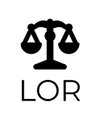Best Collaborative Law Lawyers in Dublin
Share your needs with us, get contacted by law firms.
Free. Takes 2 min.
Free Guide to Hiring a Family Lawyer
List of the best lawyers in Dublin, Ireland
About Collaborative Law in Dublin, Ireland
Collaborative Law in Dublin, Ireland, is an alternative dispute resolution process that focuses on cooperative approaches to resolving legal issues without going to court. It often involves cases related to family law, such as divorce, separation, and child custody. In this process, both parties and their specially trained collaborative lawyers commit to negotiating and solving conflicts through direct and open communication, aiming for mutually beneficial outcomes. The ultimate goal is to reach an agreement that respects the interests and needs of both parties.
Why You May Need a Lawyer
There are numerous situations where someone might seek the guidance of a collaborative lawyer in Dublin:
- Divorce and Separation: Collaborative Law can help navigate the emotional and legal complexities of ending a marriage or partnership.
- Child Custody and Parenting Plans: Ensuring the best interests of children are prioritized while creating sustainable parenting plans.
- Property and Asset Division: Fairly distributing property and assets acquired during the marriage or partnership.
- Financial Support: Determining appropriate maintenance and support obligations.
- Business Asset Management: Handling any shared business interests or assets in a fair manner.
Local Laws Overview
Dublin, and Ireland as a whole, strives to support amicable resolutions in family law disputes. Some key aspects of local legislation relevant to Collaborative Law include:
- The Family Law (Divorce) Act 1996: Sets out the grounds and procedures for obtaining a divorce in Ireland.
- The Children and Family Relationships Act 2015: Focuses on the best interests of children and lays out the legal framework for child custody and parenting plans.
- Family Law Act 1995: Deals with judicial separation and the division of family assets.
- The Maintenance of Spouses and Children Act 1976: Provides for financial support obligations between spouses and for children.
Frequently Asked Questions
What is Collaborative Law?
Collaborative Law is a legal process that enables couples to resolve their disputes amicably without going to court. Both parties work with specially trained lawyers to reach mutually agreeable solutions.
How does Collaborative Law differ from mediation?
While both processes are non-adversarial, mediation involves a neutral third party helping the disputing parties reach an agreement. In contrast, Collaborative Law includes each party having their own lawyer to provide legal advice during the negotiations.
What are the benefits of using Collaborative Law?
Some benefits include greater control over outcomes, reduced costs compared to litigation, preservation of relationships, and more creative, tailor-made solutions that meet the specific needs of the parties involved.
Is Collaborative Law suitable for all types of disputes?
Collaborative Law is particularly effective for family law disputes such as divorce, child custody, and asset division but may not be suitable for cases involving domestic violence or power imbalances.
What happens if we cannot reach an agreement through Collaborative Law?
If an agreement cannot be reached, the collaborative process ends, and both parties must retain new lawyers if they wish to proceed to court.
How long does the collaborative process take?
The duration varies depending on the complexity of the issues and the willingness of both parties to negotiate. However, it is generally quicker than litigation.
What qualifications should a Collaborative Lawyer have?
A Collaborative Lawyer should be specially trained in collaborative law techniques and experienced in family law matters. It's also beneficial if they are affiliated with organizations promoting collaborative practices.
Will my discussions in the collaborative process be confidential?
Yes, the negotiations and discussions during the collaborative process are confidential and cannot be used as evidence if the case goes to court.
How do I start the collaborative law process?
To begin, both parties must agree to the collaborative process and engage lawyers who are trained in collaborative law. A Participation Agreement is then signed to formally commence the process.
Are there any specific collaborative law organizations in Dublin?
Yes, several organizations in Dublin, such as the Dublin-based branch of the Association of Collaborative Practitioners, support and promote collaborative practices.
Additional Resources
For those seeking further information or assistance, consider contacting:
- Association of Collaborative Practitioners: A professional body supporting collaborative law practices.
- Law Society of Ireland: Provides information about finding qualified collaborative lawyers.
- Family Court Services: Offers resources and information about family law proceedings.
- Citizens Information Board: Provides comprehensive guides on family law issues in Ireland.
Next Steps
If you need legal assistance in Collaborative Law, consider the following steps:
- Research and identify lawyers specializing in collaborative law in Dublin.
- Schedule consultations to discuss your case and see if the collaborative process is right for you.
- Engage a collaborative lawyer and sign a Participation Agreement to initiate the process.
- Prepare to negotiate openly and honestly, keeping the best interests of all parties, especially any children, in mind.
Lawzana helps you find the best lawyers and law firms in Dublin through a curated and pre-screened list of qualified legal professionals. Our platform offers rankings and detailed profiles of attorneys and law firms, allowing you to compare based on practice areas, including Collaborative Law, experience, and client feedback.
Each profile includes a description of the firm's areas of practice, client reviews, team members and partners, year of establishment, spoken languages, office locations, contact information, social media presence, and any published articles or resources. Most firms on our platform speak English and are experienced in both local and international legal matters.
Get a quote from top-rated law firms in Dublin, Ireland — quickly, securely, and without unnecessary hassle.
Disclaimer:
The information provided on this page is for general informational purposes only and does not constitute legal advice. While we strive to ensure the accuracy and relevance of the content, legal information may change over time, and interpretations of the law can vary. You should always consult with a qualified legal professional for advice specific to your situation.
We disclaim all liability for actions taken or not taken based on the content of this page. If you believe any information is incorrect or outdated, please contact us, and we will review and update it where appropriate.
















